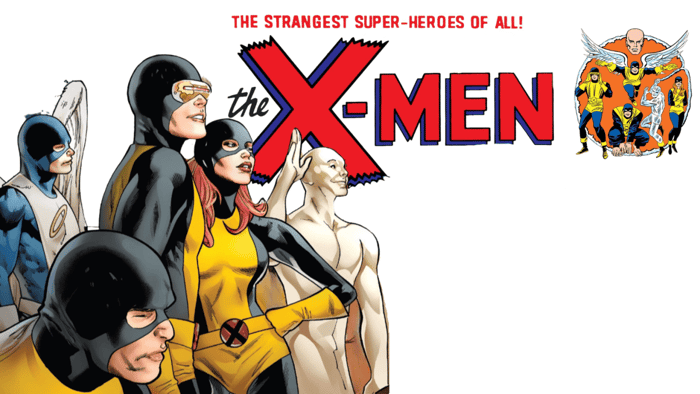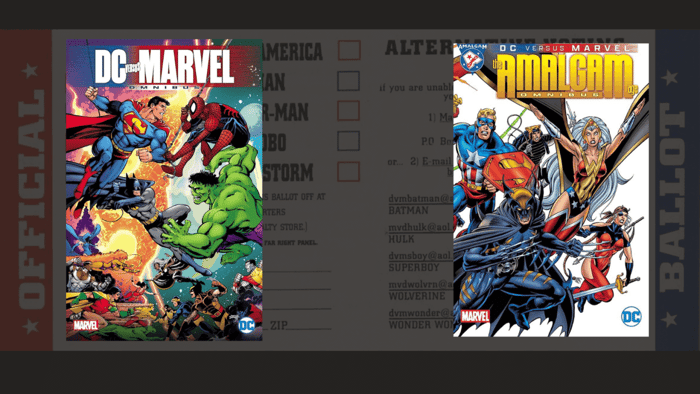The nominees for the 2024 Eisner Awards have been announced! And it's a long list full of great work, and you may be happy to see that some of your favorite writers or artists or books have been nominated. But aside from that little gold sticker on your comic book that tells you that this book was nominated, or even that this book won an award, and that this work is probably going to be really awesome - what are the Eisner Awards?
What are the Eisner Awards?
The Eisner Awards, officially known as the Will Eisner Comic Industry Awards, are considered the most prestigious awards in the American comic book industry (they do call themself the Oscars of the comic world). They started in 1988 after the "Kirby Awards" (actually named after Jack Kirby) were discontinued after three short years from 1985-1987. The Kirby Awards stopped after a nasty ownership dispute between two publishers and split into the Eisner Awards and the Harvey Awards - but that's tea for another time.
Presented annually at the San Diego Comic-Con (like the Kirby Awards), the Eisner Awards honor creative achievement in comic books and graphic novels from the previous year in a variety of categories, including Best New Series, Best Graphic Memoir, Best Children's Publication, and lots of other categories.
To be nominated, creators and publishers must submit their work for consideration by the deadline. The judges will then determine which category the work best fits, and will also select their top contenders for that category to compete in.
In the second phase, winners will be determined by popular vote. Who can vote? According to the rules, you must be either a comics creator, publisher, comics retailer (Walt????), graphic novel librarian, or comics scholar or educator (does that mean Old Man Walt can vote?!?!?).
And then the winner gets their award. Nowadays, representatives hand out the statuettes. Back in the days of the Kirby Awards, Jack Kirby used to present the awards. And for some Eisner Awards ceremonies it was Will Eisner. But what's the deal with Will Eisner?
Why are the Eisner Awards called the Eisner Awards?

Simply put, it is to honor his contributions to the art. If you might think of Stan Lee, Steve Ditko, or Jack Kirby when someone asks you to name a pioneer of superhero comics, you might think of Will Eisner when someone asks you to name a pioneer of graphic novels.
Eisner and the word graphic novel. The word graphic novel, the difference between comics and graphic novels, what are graphic novels? It is almost impossible to find a unanimous explanation and answer to these questions.
Some might say they're serialized comics that are put together into a book - a graphic novel. Some might say it's an independent, mature story that can stand on its own. Some might say it's a comic book, but better because it's not for kids and it's not about superheroes (disclaimer: some might say - we don't).
You could say it was a marketing technique for when mature comic stories for older adults were in demand and people in the mainstream media did not want to associate it with comics. In the mainstream media you couldn't say that: I read Will Eisner's comic book "A Contract With God and Other Tenement Stories". Because people might think, "You're reading comics? Kids' stuff?" No, you read the mature, serious, deep, sophisticated graphic novel "A Contract with God and Other Tenement Stories". Those were adult comics, thankfully not called adult comics, but graphic novels! And Will Eisner merely used the term graphic novel to describe his work. Which is a pretty clever and fitting word.
And "A Contract With God" is widely known for being one of the first graphic novels, pioneering the combination of mature themes and innovative storytelling techniques. Will Eisner's work depicted the struggles of urban life with authenticity, influencing the medium and inspiring generations of artists.
Eisner was a creator. With "The Spirit" (1940-1952), Eisner created a popular and innovative comic strip, often experimenting with new angles and styles. The Spirit is celebrated for its unique storytelling techniques, which were considered sophisticated for their time, and its experimental art style, which was unparalleled in comics at the time.
Eisner took comics seriously and was an educator. Back in the '70s, before comics were even considered an art form, let alone literature, he taught the craft at the School of Visual Arts in New York City and wrote textbooks on the subject.
I mean, at this point we understand why they call it the Eisner Awards.
The collection of this year's nominee

Every year you can use the Eisner nominated works and artists as a must-read list or put some works on your wishlist.
This year we've decided to make a collection of all the nominated works that we have in stock. We'll also be adding a Will Eisner collection with some of his most famous work and a collection of past winners and nominees. This means you no longer have to navigate between sites to view and search for nominated works online.
Simply click HERE and Enjoy!





